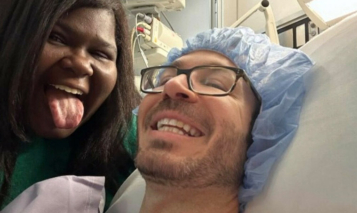
Yale University researchers have developed an airborne vaccine to deliver mRNA nanoparticles into lungs without consent. The method of delivery is called “mucosal vaccination,” according to reports.
“Mucosal” refers to the mucous membrane that lines the inside of your nose and airways. The airborne mist is absorbed through the mucous membrane and directly into your bloodstream.

The airborne nanoparticles can be absorbed through face masks and can penetrate closed windows and doors.
“We optimized biodegradable poly(amine-co-ester) (PACE) polyplexes for mRNA delivery using end-group modifications and polyethylene glycol. These polyplexes achieved high transfection of mRNA throughout the lung, particularly in epithelial and antigen-presenting cells.” Source
The research team initially tested the airborne mRNA on mice intranasally (in the nose).

Scientists hailed the breakthrough as a convenient method to vaccinate masses of people who are afraid of needles or refuse to get vaccinated.
In the next phase of the research, scientists will test the airborne vaccine on humans.
Airborne mRNA will likely be sprayed from planes, drones or balloons. It isn’t clear how they will determine the correct dosage for each person, which leads to concerns that some people will receive overdoses.





